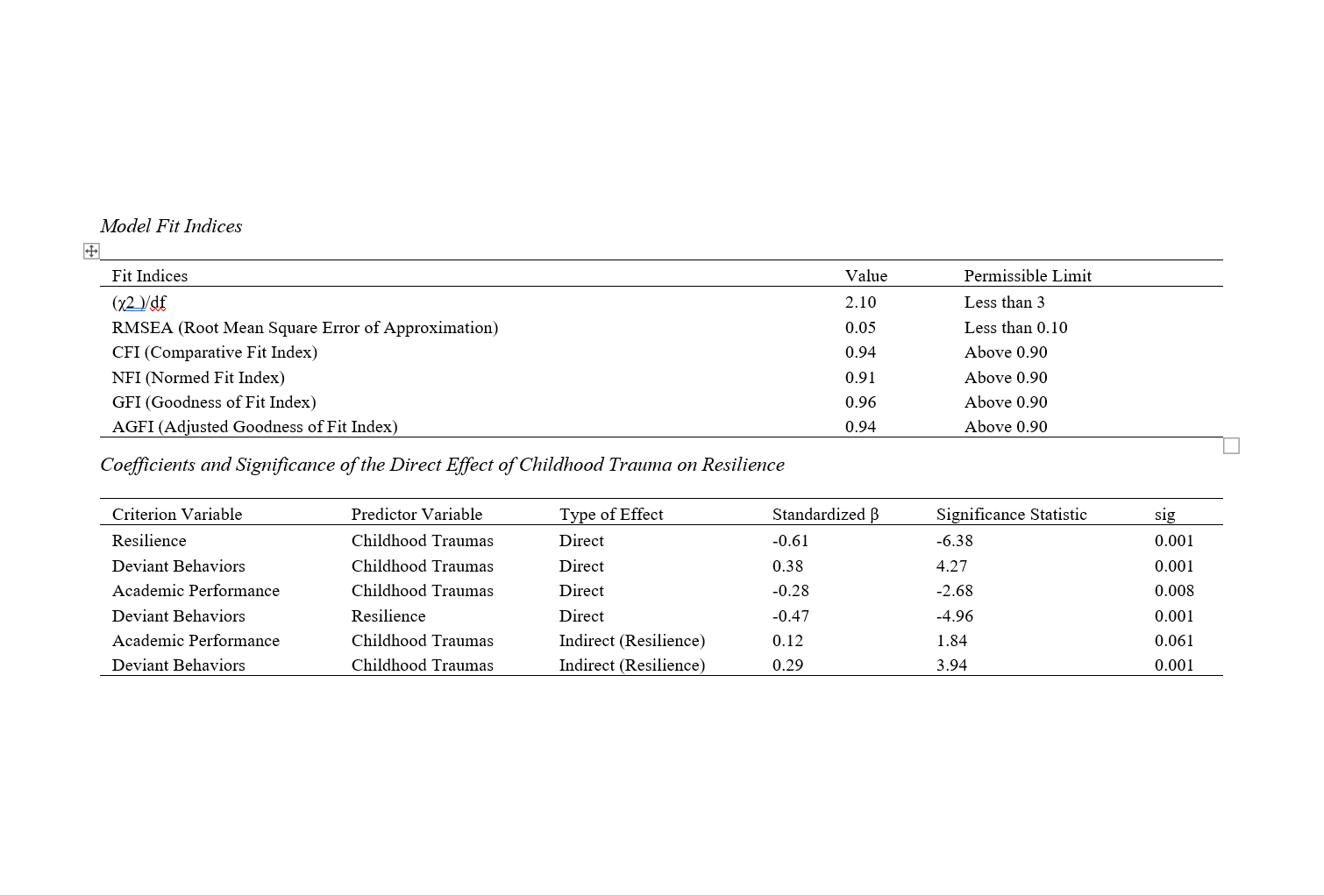The Structural Model of the Causal Relationship Between Childhood Trauma and Deviant Behaviors and Academic Performance with the Mediation of Resilience in Students
Keywords:
trauma, deviant behavior, academic performance, resilience, studentsAbstract
Objective: Today, the academic progress and performance of students have been considered an important indicator for evaluating the educational system. The present study aimed to fit the proposed model of the causal relationship between childhood traumas, deviant behaviors, and academic performance with the mediation of resilience in students.
Methods and Materials: This correlational study employed structural equation modeling (SEM) or causal modeling for model fitting. The statistical population included all male and female high school students in the 22 districts of Tehran during the 2023-2024 academic year, from which 370 students were randomly selected. Data were collected using the Bernstein et al. (2003) Childhood Trauma Questionnaire, the Eyberg and Ross (1978) Child Behavior Checklist, and the Liebenberg et al. (2012) Child and Youth Resilience Measure. Data were analyzed using SPSS.24 and AMOS.24 software.
Findings: The results showed that childhood traumas had a direct effect on resilience (t = -6.38, β = -0.61). Childhood traumas had a direct effect on deviant behaviors (t = 4.27, β = 0.38). Childhood traumas had a direct effect on academic performance (t = -2.68, β = -0.28). Resilience had a direct effect on deviant behaviors (t = -4.96, β = -0.47). Additionally, the model of childhood traumas with deviant behaviors and academic performance mediated by resilience in students was a good fit.
Conclusion: It can be concluded that resilience plays a mediating role in the relationship between childhood traumas, deviant behaviors, and academic performance.
Downloads

Downloads
Additional Files
Published
Submitted
Revised
Accepted
Issue
Section
License

This work is licensed under a Creative Commons Attribution-NonCommercial 4.0 International License.








